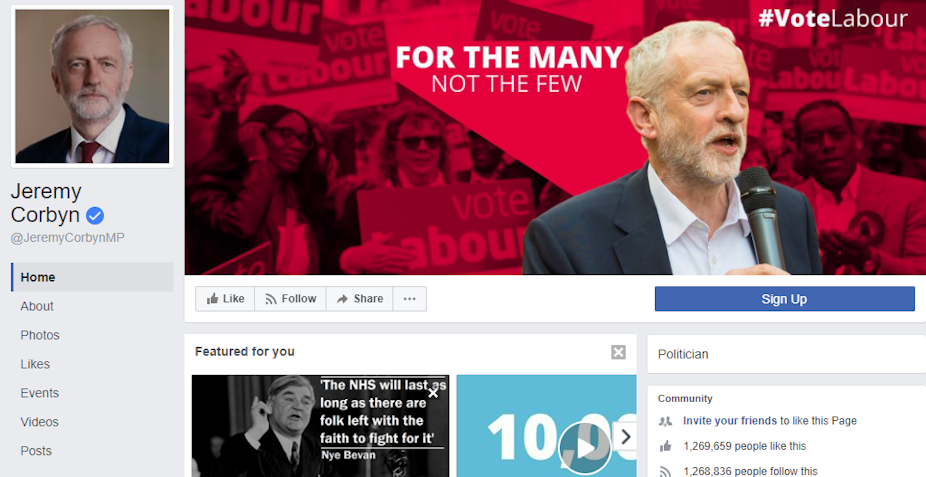The combined impact of social media and the obligation on broadcasters to give fair coverage were the major factors in Labour’s unexpected strong showing in the UK general election, according to a key member of leader Jeremy Corbyn’s communications team.
In his first interview since the poll, Steve Howell – Corbyn’s deputy director of strategy and communications – said Fleet Street’s “smear campaign” had backfired.
Howell, who joined Corbyn’s team in February, believes the election has exposed a fundamental mismatch between most of the London-based press and the views of the electorate. He said:
They switched into gear, thinking they could destroy Jeremy Corbyn and Labour with their usual tactics. It was an extraordinary smear campaign and they thought it would work.
I think the political spectrum of the national press is way to the right of the political thinking of the people of Britain. Our national press is not representative at all of public opinion and can no longer shape it in the way it used to do.
The fact that broadcasters are obliged to give equal – and fair – coverage to political parties during election campaigns gave Corbyn the first real chance to put his views across to the wider public, according to Howell. This was recognised by researchers from Cardiff and Loughborough universities who found Labour receiving roughly equal broadcast coverage from week two of the campaign – the week that saw Labour’s biggest poll surge. Howell explained:
We knew that once people are exposed to him, they like him. People had not been exposed to him, because they were just getting this very filtered impression of him through 10 second clips on broadcast media – and a very distorted picture through print media. With the election, we had an opportunity to correct that, because broadcast media has an obligation to be more balanced.
Reaching out
Broadcast coverage was the first key part of the party’s media strategy for Corbyn. The second was the use of social media, including expenditure of £1.3m on digital advertising on Facebook, Snapchat and Google (including “pre-roll” adverts that are shown before videos play on YouTube). The aim was to get beyond Corbyn’s – and Labour’s – own social media footprint and talk not only to the converted.
Before the election, Corbyn had 800,000 followers on Twitter, a figure which has now risen to 1.25m – compared to 356,000 for Theresa May. His Facebook page is liked by 1.2m, compared to 427,000 for May. According to Howell, Corbyn’s Facebook page had a weekly reach of 29m in the final week of the campaign. He said:
Having a budget [for digital advertising] complimented this massive “organic” reach. Some posts were seen by 15m people – meaning they came up on their Facebook page.
Taking risks
Beyond the emphasis on broadcast and social media, Howell believes Labour’s team succeeded in turning Corbyn’s perceived weaknesses in some areas into strengths:
Conventional wisdom says if you’ve got a perceived weakness, you try to deflect and go onto something else. We took the view that some of these things that were perceived as weaknesses were actually strengths and that we were prepared to take them head-on. Some people [in the Labour campaign team] thought this was risky – and it probably was. But I think it’s proven to be the right thing to do.
A key decision for the party was regarding how to resume campaigning after the Manchester terrorist attack. Howell says some in the Labour team thought they should focus on domestic issues, such as the NHS. But they chose to make a speech about terrorism and British foreign policy, which led to a backlash in the press, attacking Corbyn’s record on opposing terrorism. Howell said:
We couldn’t know it in advance, but it turned out that what he was saying chimed with what many people felt, that public opinion shared that view that some of the foreign policy decisions have not actually made us safer.
Behind everything was the awareness that the Labour leader was likely to be attacked as an extremist. It was reported by the Daily Telegraph that Howell had proposed the slogan “The Tories are the real extremists” to a campaign meeting, but had been overruled. He denies that the proposal was to use the slogan in campaigning:
There was a slide that talked about the Tories as the real extremists. The point of the slide was to say that we did need an element of attack in our campaign – and the Tory campaign was almost all attack. So all I was saying in my presentation was that we needed to show that if they were going to attack us as extremists, many of the things that they were doing were pretty extreme.
With the election over, Howell says Labour’s campaigning strategy will be maintained: “We definitely don’t want to lose the momentum – but a degree of focus moves back to parliament, [so] it has to dovetail with campaigning. We keep momentum on both fronts – they have to complement each other.”

